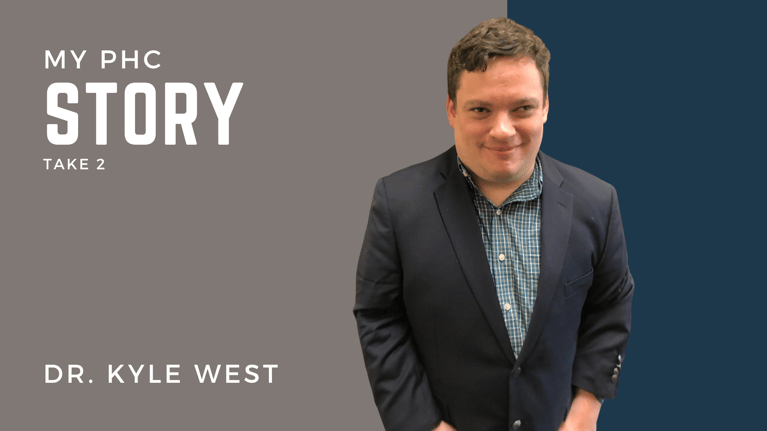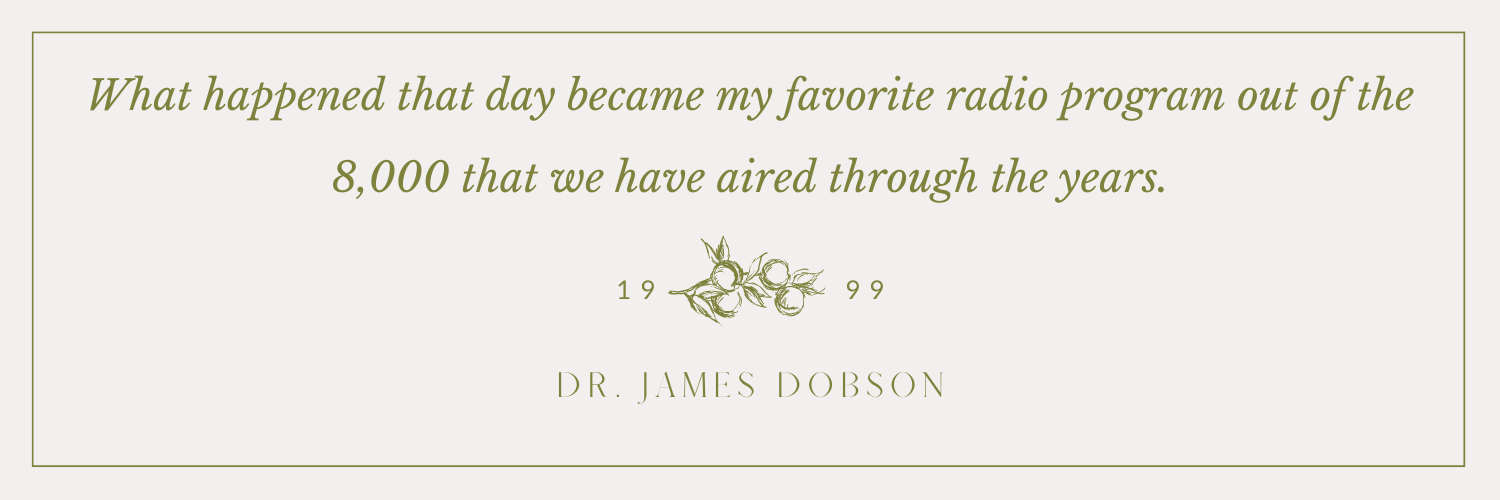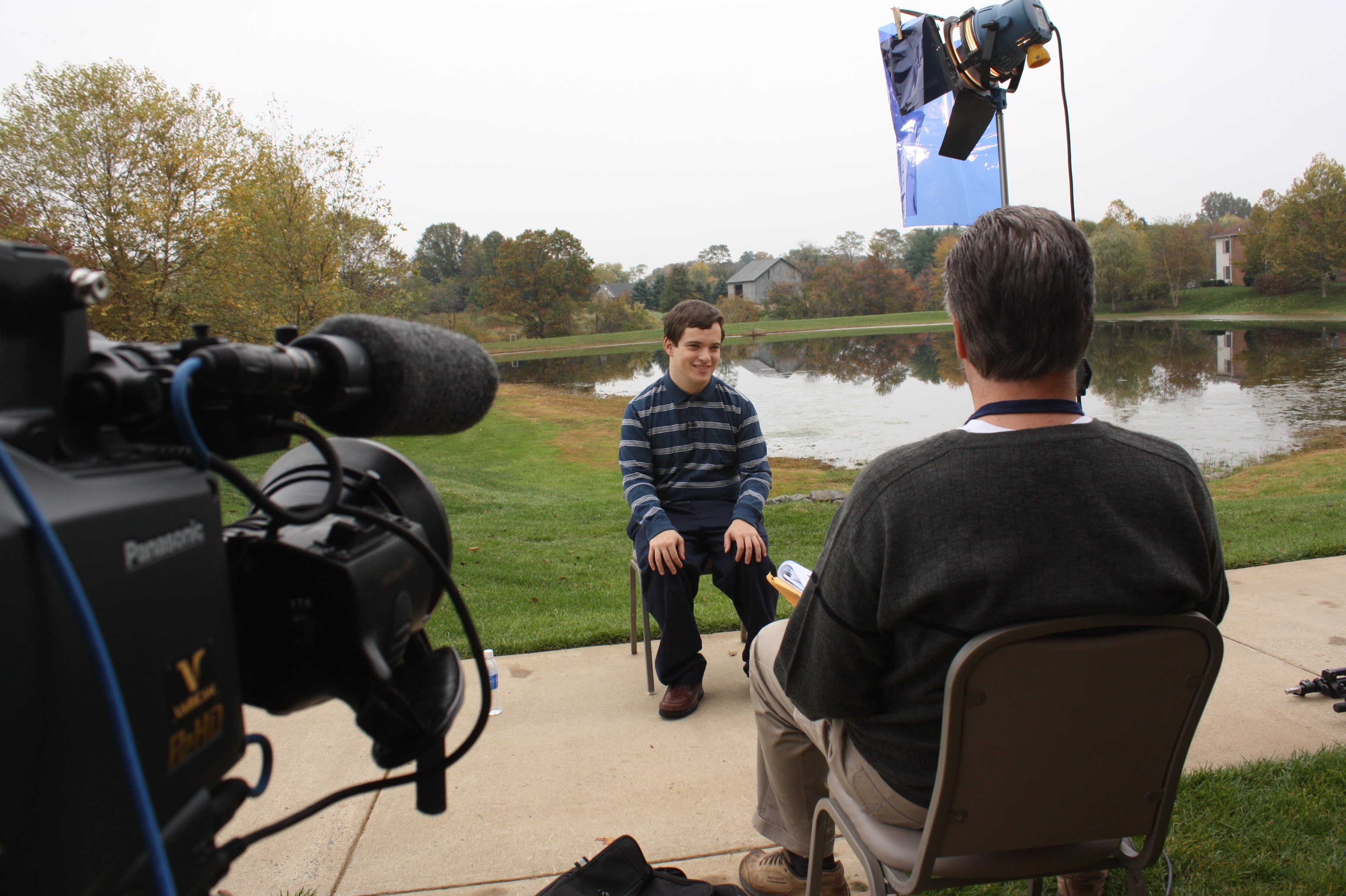
Before completing his Ph.D. at the University of Pennsylvania this summer, alumnus Dr. Kyle West (History, ’14) received a call from Dr. Douglas Favelo about the opening for an assistant professor of Classics at PHC. A little over a month after giving his dissertation, West is now a full-time professor. “It felt like God had hung a neon sign over the door, [indicating] go this way!” West said.
This is not the first time a providential intervention has happened in West’s life. The first occurred when West was seven years old. West was invited to be a guest for an on-air interview with none other than Dr. James Dobson in 1999. About that interview, Dr. Dobson says, "What happened that day became my favorite radio program out of the 8,000 that we have aired through the years."

West’s father worked for Focus on the Family at the time, and West met Dr. Dobson at an employee family picnic. “I and Dr. Dobson kind of hit it off and he had me in his studio just to have a conversation. They ended up recording the whole thing as a broadcast.” Eleven years later, West was invited back to do a follow-up interview.
A memorable moment from that 1999 interview, West recalls, was a particular question that he asked. “I was born with a mobility disability called cerebral palsy and I was not known for being particularly down on myself about it. I had always just kind of accepted it as part of my life and kind of rolled with it. But somehow, in the course of my conversation with Dr. Dobson, I got to a point of asking, what could God do with a boy with my condition?” West later heard what God did do with his condition. A pediatric surgeon who dealt with cases like West’s heard the podcast and “[He] pulled over on the side of the road and committed his life to Christ.” For West, that one story has been a constant reminder whenever he was tempted to doubt God’s faithfulness.

An image taken during Dr. West's 2010 interview at PHC for an article in PHC's newsletter, The
Trumpet of Liberty
While in high school, West heard about PHC through his debate circle. He recalled that the main factors in his interest in PHC were a combination of his desire to attend a Christian college that is firm in its beliefs and convictions as well as forensic success.
Thanks to the mentorship of Drs. Spinney, Favelo, and McRoberts, West pursued graduate school at the University of Colorado after taking a year to teach high school history. West recently completed six years of study to obtain a Ph.D. in Ancient History at the University of Pennsylvania. “I was passionate enough about the subject matter that I really wanted to go in-depth—digging a little bit further than you could go with an undergraduate degree or teaching high school. … In a way, getting a Ph.D. was sort of a marriage of my love to talk and to communicate about the things that I'm passionate about to other people.”
Teaching as a professor has been West’s desire since about the age of 12 after his uncle first mentioned the idea. “He said, ‘Kyle, you like to talk. If you became a professor, you'd have a captive audience.’” West reminisced.
West encouraged students to live a balanced life. “Don’t be fixated on your grades,” West said, “A few years down the road a couple points off your GPA isn’t going to matter. What’s going to matter is, did you grow spiritually?”
Before receiving the call from Dr. Favelo, West had completed thirty-eight job applications in twenty states, Canada, and Italy. One after another, West received the same message, that they weren’t hiring at the time. “I was getting to the point of like, ‘Okay, Lord, you've brought me through this. It's been eight years of graduate school. What's your intention here because I feel like I'm sort of hanging out to dry.’”
Ultimately, West hopes that students will remember that, if God has put them somewhere, He will be faithful to bring it about in a way that will be fruitful, life-giving, and glorifying to Him.
---------
Learn how PHC stands apart from other Christian liberal arts programs.
Patrick Henry College exists to glorify God by challenging the status quo in higher education, lifting high both faith and reason within a rigorous academic environment; thereby preserving for posterity the ideals behind the "noble experiment in ordered liberty" that is the foundation of America.






